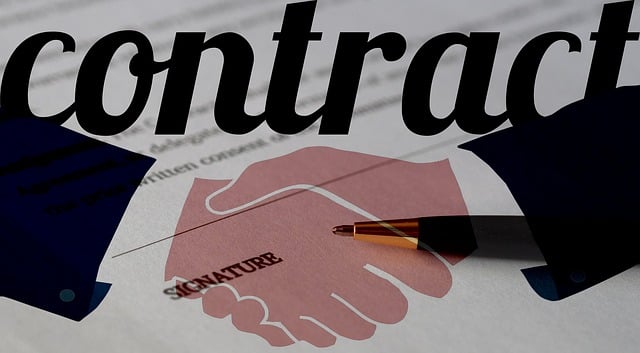Understanding lease clauses tailored for student renters is crucial before signing agreements. Key terms include flexible rent options, subletting rules, maintenance duties, damage deposits, and dispute resolution. By familiarizing themselves with these clauses, students protect their rights and ensure a positive rental experience. A comprehensive lease outlines term length, rent details, maintenance responsibilities, security deposits, and student-specific considerations. Negotiating flexible terms can empower students to advocate for better conditions suited to their needs and financial constraints.
“Unraveling the complexities of lease terms is crucial for student renters aiming to protect their rights and make informed decisions. This comprehensive guide navigates the world of lease clauses specifically tailored to students, offering clarity in a often confusing legal landscape. From understanding common jargon to negotiating changes, we empower students to decipher and simplify lease terms, ensuring a seamless rental experience. Key topics include essential elements every student lease should contain, making it easier for folks to find suitable accommodations.”
- Understanding Common Lease Clauses for Students
- Deciphering Complex Language: A Student's Guide
- Simplifying Terms: Protecting Your Rights as a Tenant
- Essential Elements Every Student Lease Should Include
- Negotiating Lease Changes: Empowering Student Choices
Understanding Common Lease Clauses for Students

For student renters, understanding common lease clauses is essential before signing any rental agreement. Many leases include specific terms tailored to accommodate the unique needs and circumstances of students. One such clause is the flexibility in rent payment, which might offer options like automatic payments or deferred payments during certain periods. Another typical provision is subletting rules, allowing students to temporarily assign their lease to another party when they leave for holidays or semesters abroad.
Additionally, leases often include provisions related to maintenance and repairs, with clear definitions of the landlord’s and tenant’s responsibilities. Damage deposit clauses, which outline the conditions for returning security deposits, are also common. Students should pay close attention to these as they protect both the renter and the landlord from unexpected financial burdens. Knowing what each lease clause means can empower students to make informed decisions and ensure a smooth rental experience.
Deciphering Complex Language: A Student's Guide

Lease terms can often seem like a foreign language for student renters, filled with complex legal jargon that’s easy to overlook or misunderstand. Deciphering these lease clauses is crucial for students who want to avoid unexpected pitfalls and ensure a positive rental experience. Start by familiarizing yourself with common terms used in lease agreements. “Term” refers to the duration of your tenancy, while “rent” specifies the amount you’ll pay at regular intervals.
Pay close attention to provisions related to security deposits, maintenance responsibilities, and any restrictions on subletting or pet ownership. Students should also look for clarity on renewal options, notice periods for moving out, and procedures for handling damage or disputes. Taking the time to understand these lease clauses will empower students to make informed decisions and protect themselves from potential misunderstandings or unfair practices.
Simplifying Terms: Protecting Your Rights as a Tenant

Simplifying lease terms is a critical step in protecting your rights as a student tenant. Many lease clauses can be complex and confusing, often favoring the landlord. By understanding key terms like rent amount, due dates, and duration, students can avoid unexpected costs and disputes. Additionally, clarity on maintenance responsibilities, subletting rules, and termination procedures empowers tenants to make informed decisions.
Focusing on these aspects ensures tenants know their rights and obligations. It’s essential to read every line carefully, ask for clarifications when needed, and seek legal advice if unsure about any lease clauses. This proactive approach can significantly reduce potential issues and create a fairer living environment for students.
Essential Elements Every Student Lease Should Include

Every student lease should be clear and comprehensive, protecting both tenants and landlords while ensuring a smooth rental experience. Here are some essential elements that every student lease should include:
1. Term Length and Renewal Options: The lease should specify the start and end dates of the tenancy, as well as outline any renewal clauses or termination policies. This provides students with certainty about their stay duration and allows them to plan accordingly.
2. Rent Amount and Payment Schedule: Rent details are crucial. The lease must clearly state the monthly rent amount, due date, and accepted payment methods. It should also include any late fees or penalties for missed payments.
3. Lease Responsibilities and Maintenance: Both parties should understand their responsibilities regarding property upkeep. This includes stipulations on regular maintenance tasks, repairs, and who is responsible for each. Any restrictions on modifications or subletting should also be included.
4. Security Deposit and Refund Policy: Students need to know what to expect upfront and at the end of their tenancy. The lease should detail the security deposit amount, how it will be held, and under what conditions it can be refunded upon move-out.
5. Lease Clauses for Students: Specific clauses addressing student life are beneficial. These could include provisions for noise levels, guest policies, and any academic considerations that might impact their living environment, such as exam periods or study hours.
Negotiating Lease Changes: Empowering Student Choices

For student renters, understanding and negotiating lease terms can be empowering. Many standard lease clauses can be confusing or unfavorable to young individuals, such as provisions for unexpected maintenance costs or restrictions on subletting during short breaks. Students should not shy away from initiating conversations with landlords about altering these conditions.
By actively discussing lease changes, students can advocate for more flexible and cost-effective terms that better align with their unique needs and financial constraints. This negotiation process encourages transparency between tenants and property owners, fostering a healthier rental relationship based on mutual understanding and respect.






